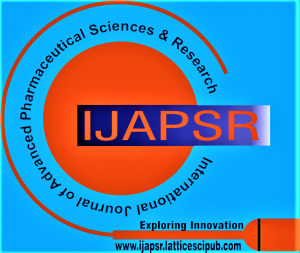![]()
Insights into Therapeutic Peptides and their Quality Control
Ayat Abbood
Ayat Abbood, Department of Medicinal Chemistry and Quality Control, Faculty of Pharmacy, University of Tishreen, Latakia (Syria), Middle East.
Manuscript received on 14 November 2024 | Revised Manuscript received on 26 November 2024 | Manuscript Accepted on 15 December 2024 | Manuscript published on 30 December 2024 | PP: 20-27 | Volume-5 Issue-1, December 2024 | Retrieval Number: 100.1/ijapsr.A406105011224 | DOI: 10.54105/ijapsr.A4061.05011224
Open Access | Editorial and Publishing Policies | Cite | Zenodo | OJS | Indexing and Abstracting
© The Authors. Published by Lattice Science Publication (LSP). This is an open-access article under the CC-BY-NC-ND license (http://creativecommons.org/licenses/by-nc-nd/4.0/)
Abstract: Therapeutic peptides have been garnering renewed attention in recent years. The manufacturing of peptides and protein-based drugs rapidly expands within the pharmaceutical sector. These compounds may be obtained through solid-phase synthesis or biotechnological methods. Peptides and proteins are delicate molecules that undergo chemical or physical changes such as oxidation of methionine, deamidation of asparagine and glutamine, isomerization, aggregation, and denaturation during production. The alterations could compromise the stability of the drugs, consequently impacting the therapeutic efficacy of the protein or peptide. It is essential to effectively monitor the quality of proteins or peptides to verify the preservation of their biological properties throughout the production process. This review outlines the official guidelines for quality control of peptides manufactured through solid-phase synthesis or genetic engineering. The discussion also covered the frequently utilized separation techniques for evaluating the efficacy of therapeutic peptides.
Keywords: Peptides, Analysis, Quality, Synthesis.
Scope of the Article: Pharmaceutical Technology
